Scholars from across the Asia-Pacific gathered at Tsinghua University on October 8-9, 2024, for the inaugural Asia-Pacific Responsible Research in Business and Management (RRBM) Summit. The event, a landmark for advancing responsible business research, brought together deans, scholars, and industry leaders to tackle one of the most pressing questions in academia: How can research in business schools drive meaningful impact for both society and industry? Through keynote speeches, panel discussions, and PhD presentations, the summit called for a holistic research approach—one that transcends individual efforts and fosters a stronger alignment between academic inquiry and societal needs.
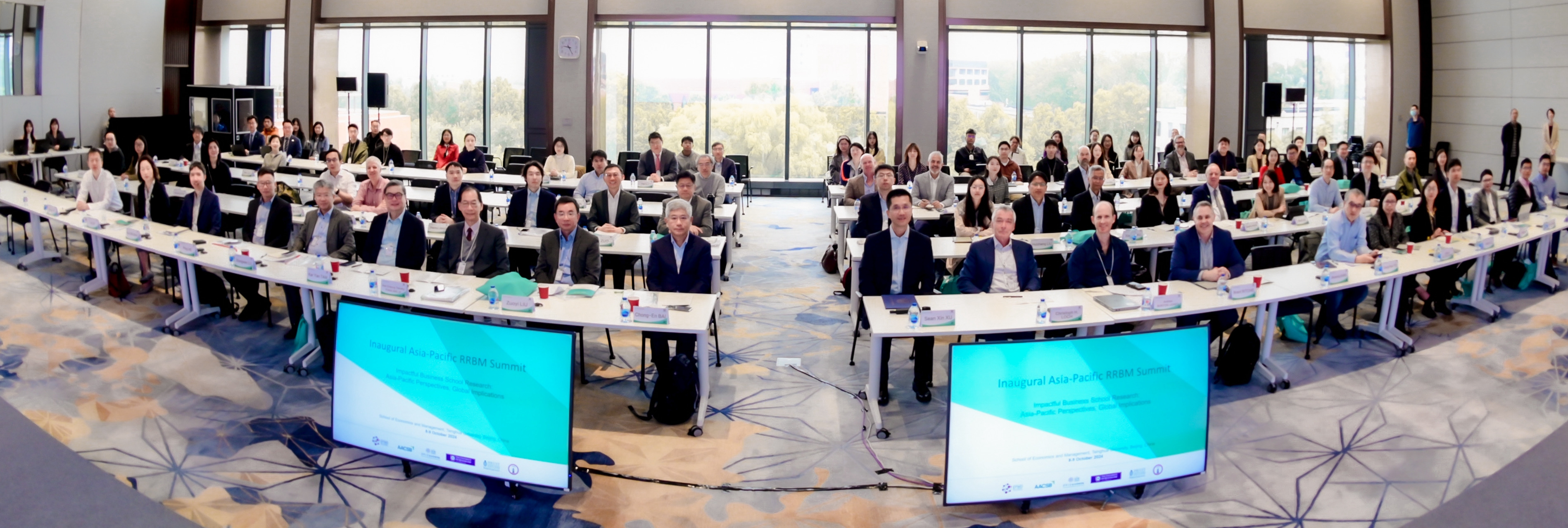
Attendees agreed that the main challenge in advancing responsible research lies not in defining its importance, but in how to implement it effectively. While many institutions—business schools, journals, and funding agencies—pursue individual approaches, the consensus is that a more holistic strategy is needed. Key priorities include fostering a culture of curiosity and societal service, aligning research incentives, eliminating bias, encouraging interdisciplinary collaboration, and supporting researchers who take risks. Additionally, better coordination across the research ecosystem, especially through accreditation agencies, was emphasized to set common standards and share knowledge.
Xu Xin, associate dean of Tsinghua University's School of Economics and Management (Tsinghua SEM), chaired the summit. In his welcome remarks, Bai Chong-En, dean of Tsinghua SEM, introduced the Responsible Research in Business and Management (RRBM) initiative, a virtual organization originally founded by 24 scholars from 23 business schools and now supported by a growing community. Bai emphasized the crucial role responsible research plays in both science and society: it is "scientific work that produces credible knowledge with either direct or indirect usefulness for addressing problems important to both business and society." He also introduced RRBM’s seven guiding principles and provided an overview of Tsinghua SEM.
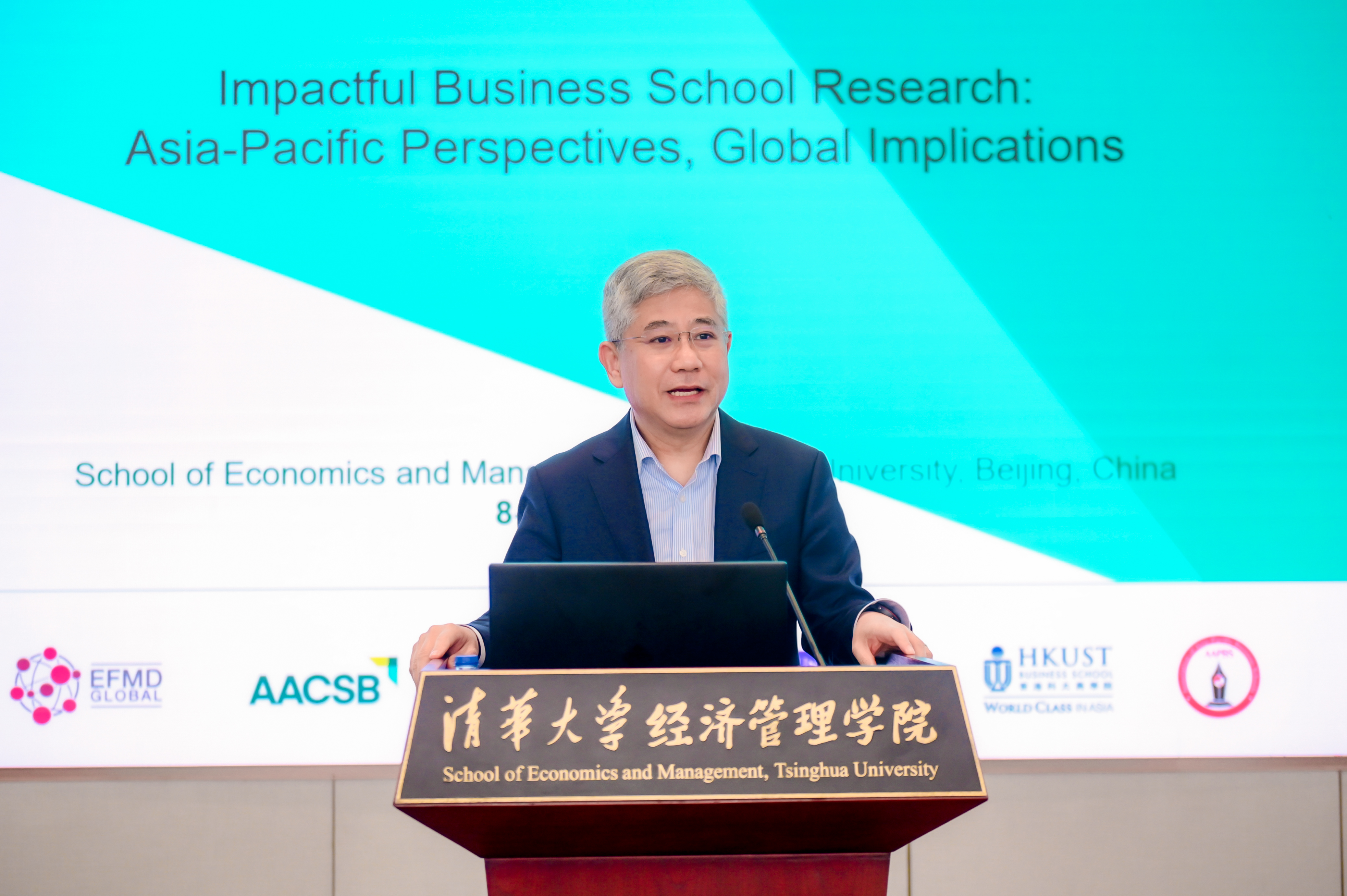
Bai Chong-En delivers a welcome remark.
Liu Zuoyi, deputy director of the Management Science Department of the National Natural Science Foundation of China (NSFC), delivered a keynote speech titled "Fundings by the Department of Management Sciences, National Natural Science Foundation of China". He introduced the history and goals of the Management Sciences Department, providing the funding profile of free exploration projects, key projects, talent-focused projects, and projects tailored to national needs, while also addressing the challenges faced by management research.
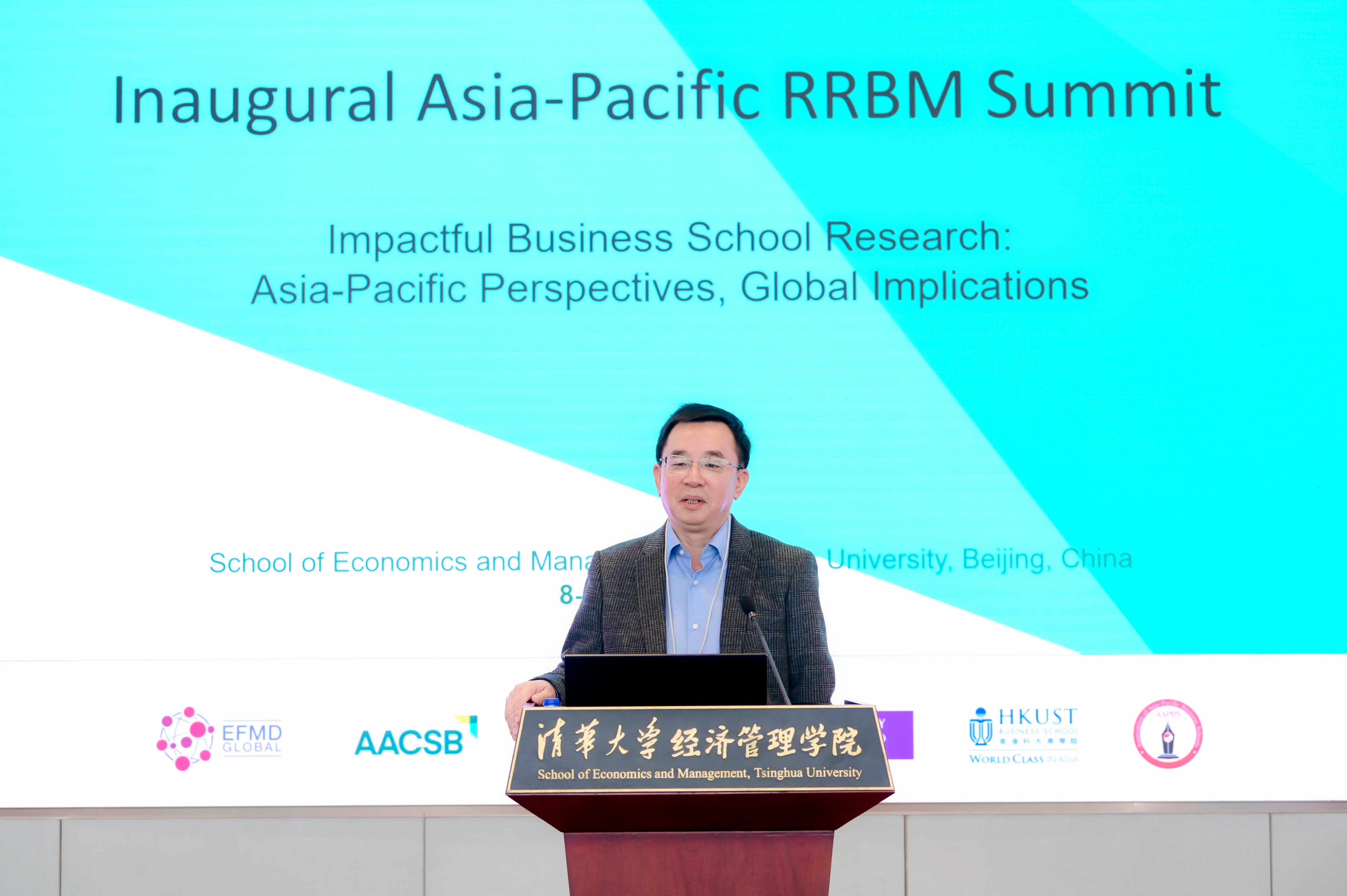
Liu Zuoyi delivers a speech.
Wai Cheung Timothy Tong, SBS, JP, chairman of Hong Kong Research Grants Council, delivered a keynote speech titled "Research Opportunities, Challenges, and Funding Priorities". He highlighted the excellence of Hong Kong's universities, the evolution of funding programs, cross-border collaborations, and the nurturing of young scholars. Through various research funding schemes, the Hong Kong Research Grants Council aims to drive cutting-edge research, enhance Hong Kong's global competitiveness, and align with national strategies.
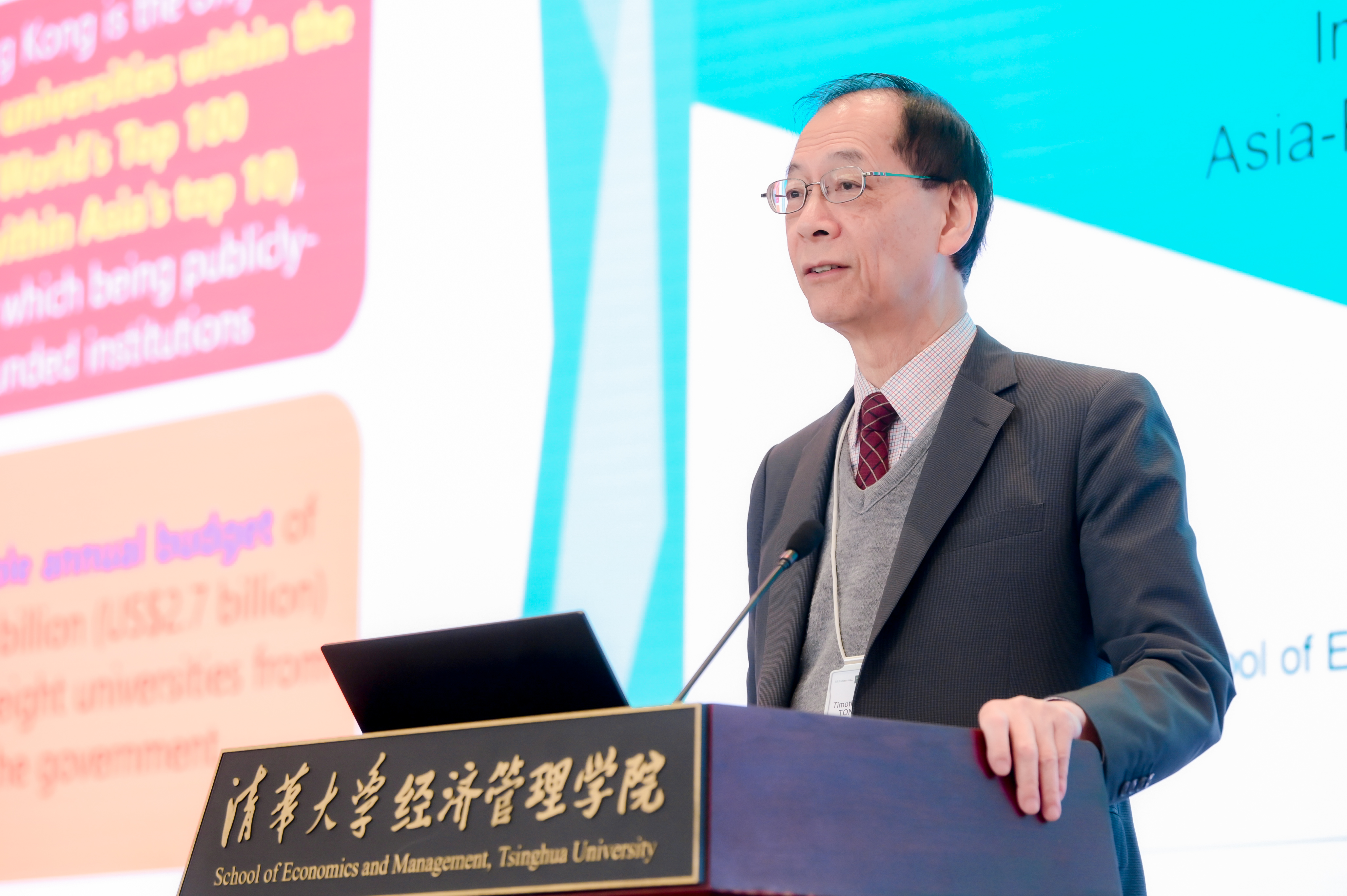
Wai Cheung Timothy Tong delivers a speech.
Christoph H. Loch, a professor of Operations and Technology Management at Cambridge Judge Business School, and also a Professor of Operations, Information and Technology at IESE Business School, University of Navarra addressed three primary dilemmas and challenges in research: "methods have become ends rather than the means to gain insight", "theories often receive much more attention than relevance and impact"; and "should the target of responsible research be business Utility or societal Utility?" In response to these questions, Loch advocated for hiring and educating faculty, working on relevant problems, as well as fostering multidisciplinary collaboration to actually make a difference.
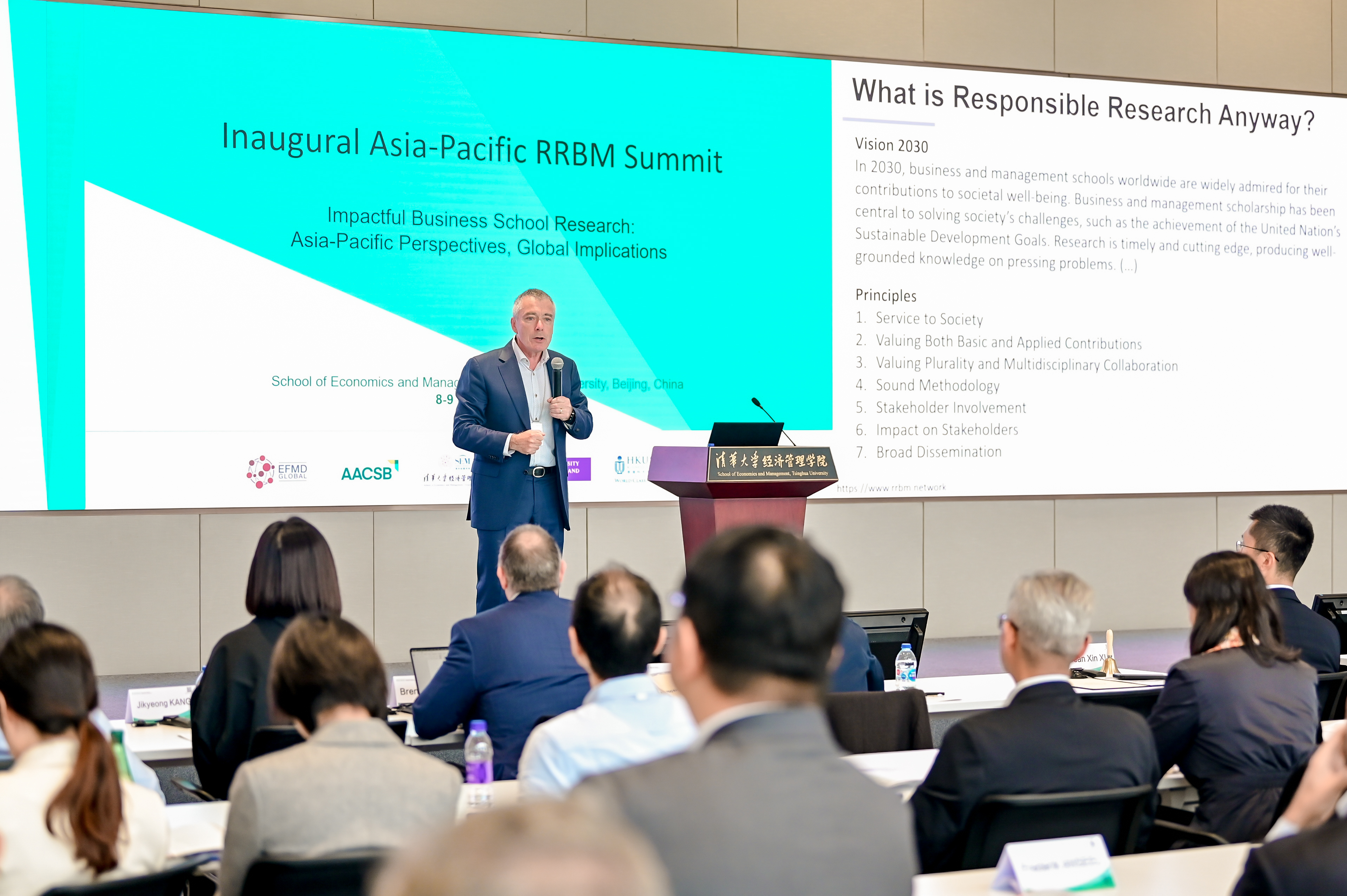
Christoph H. Loch delivers a speech.
Six parallel panel discussions brought together scholars from leading Asia-Pacific business schools, journal editors, and international industry professionals. The panels examined responsible research across various areas, including education, industry practices, policymaking, doctoral training, and the roles of deans, senior faculty and journal editors. In the subsequent integration and reflection sessions, each panel reached a consensus and provided actionable suggestions for implementing responsible research.
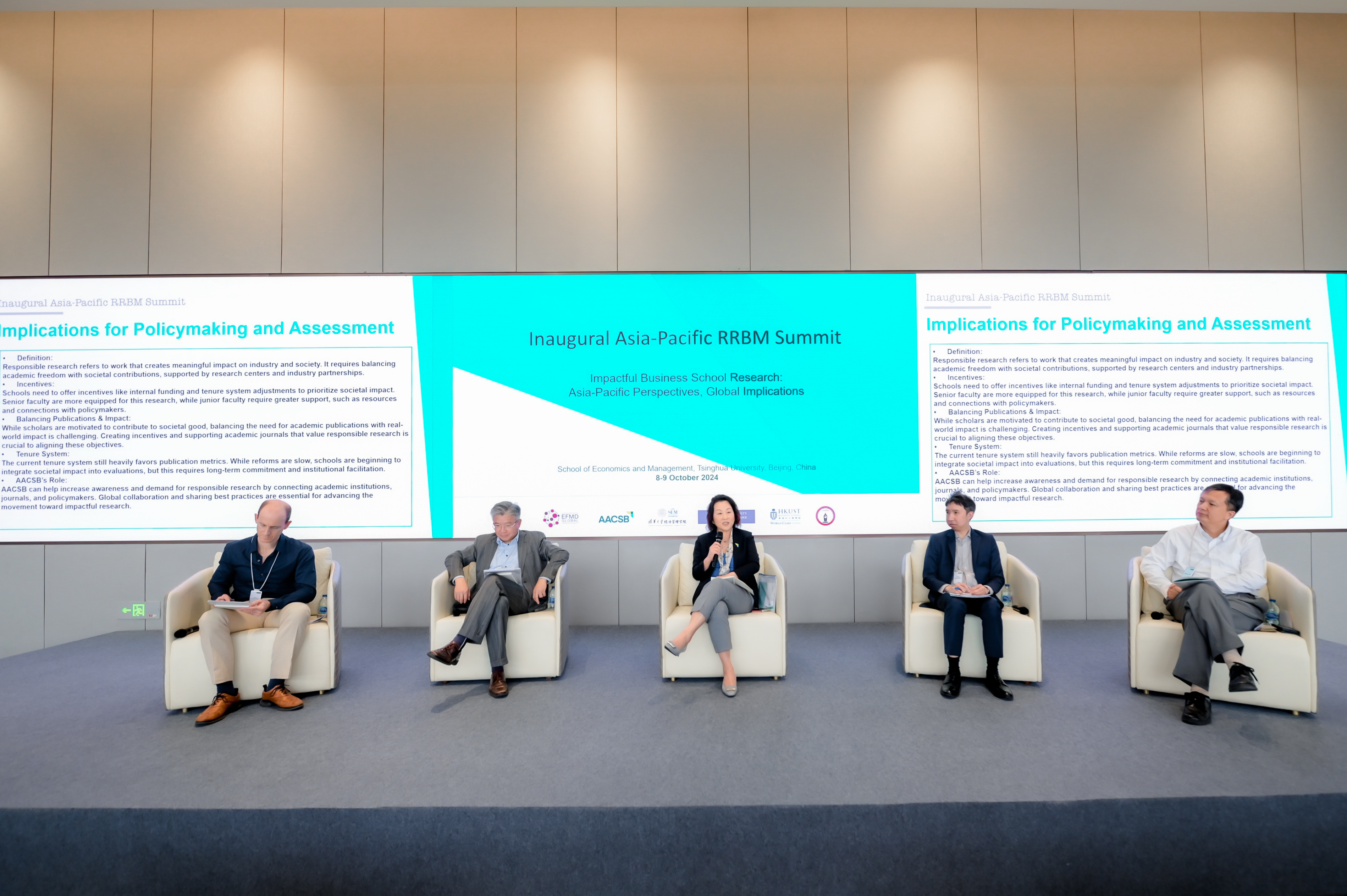
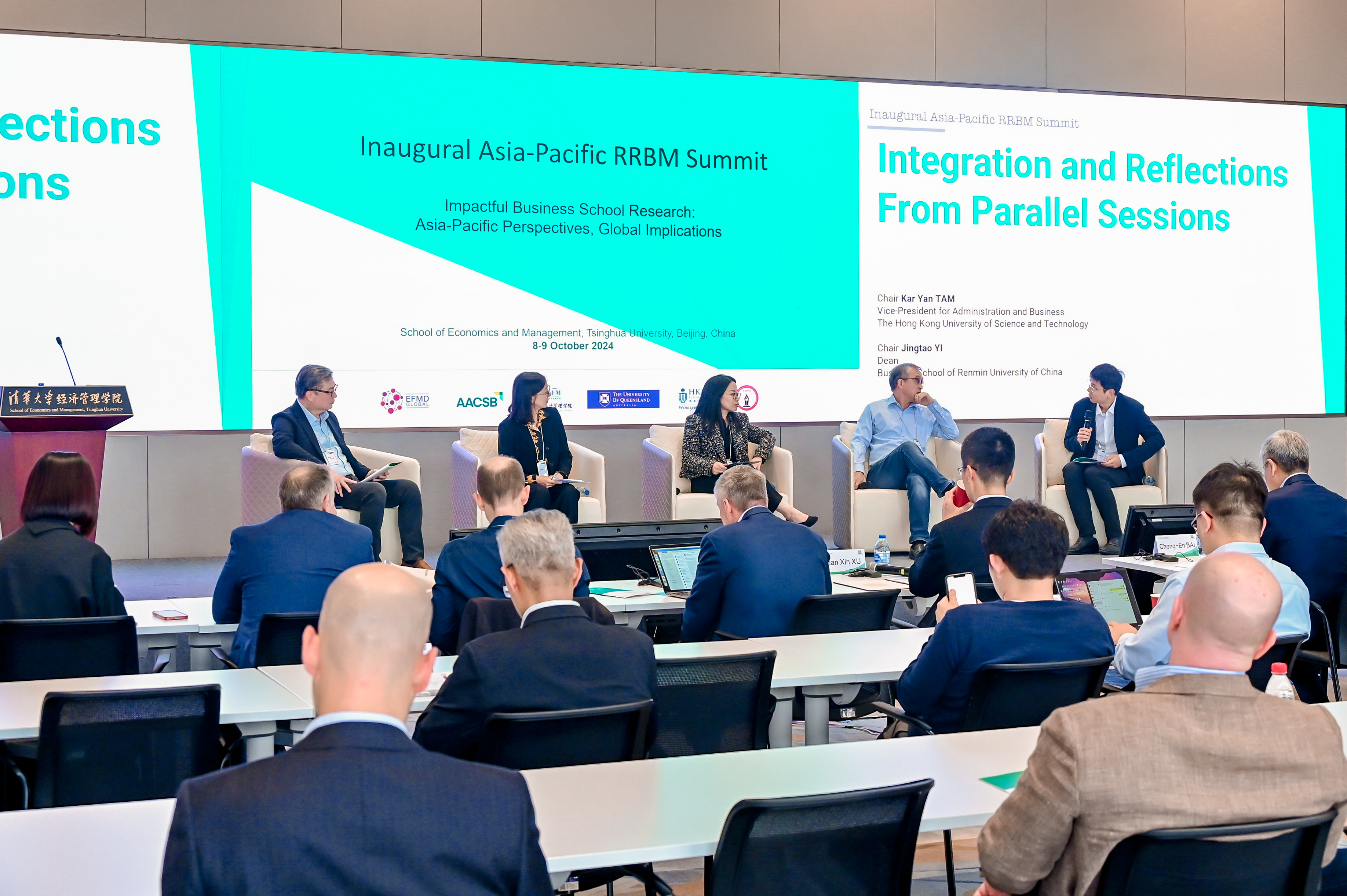
Photos of the integration and reflection session
At the conclusion of the summit, Jikyeong Kang, president and dean of Asian Institute of Management, and Brent Ritchie, dean and head of Business School at the University of Queensland, delivered closing remarks and reiterated the initiatives proposed during the meeting.
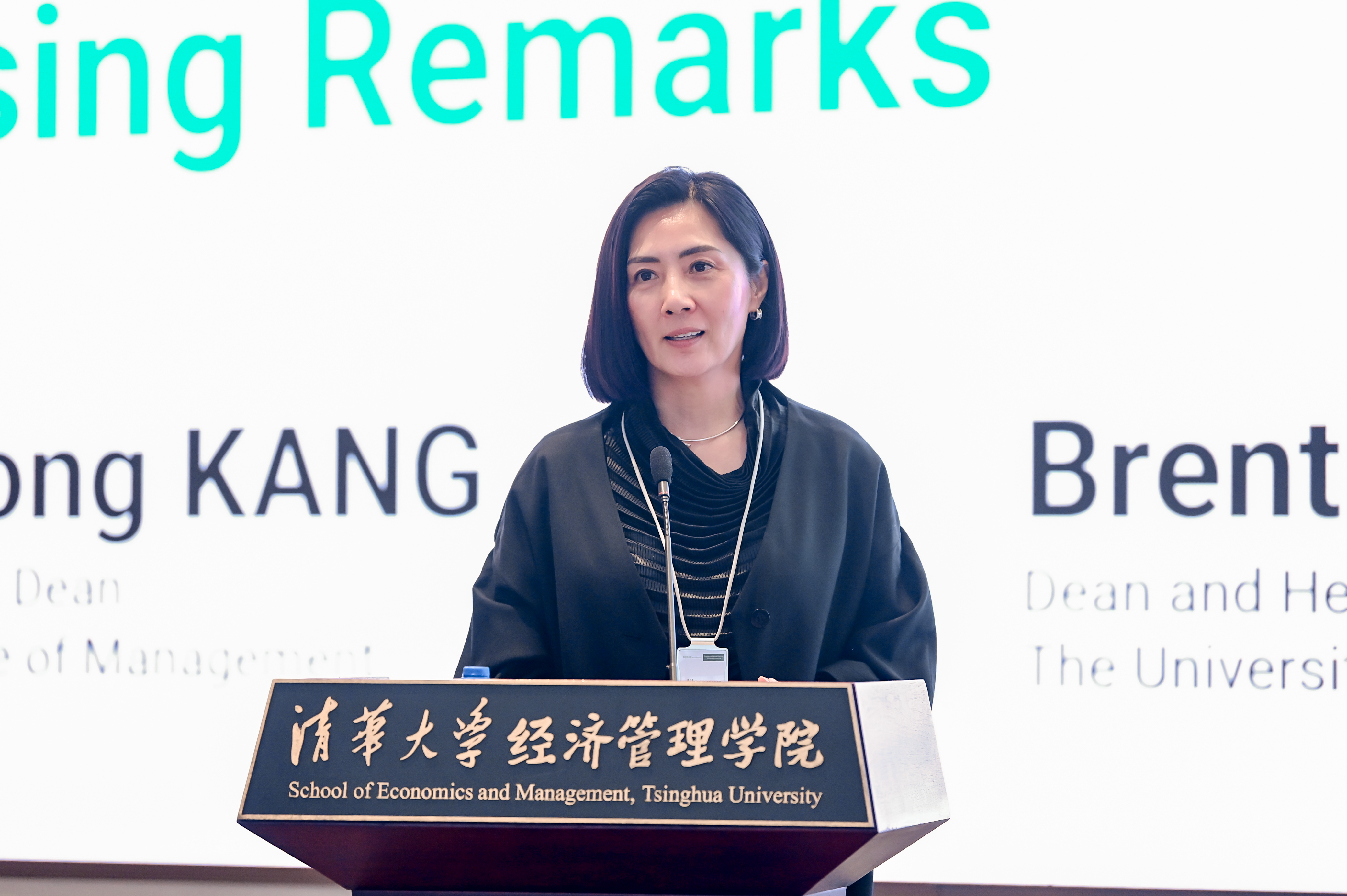
Jikyeong Kang delivers a closing remark.
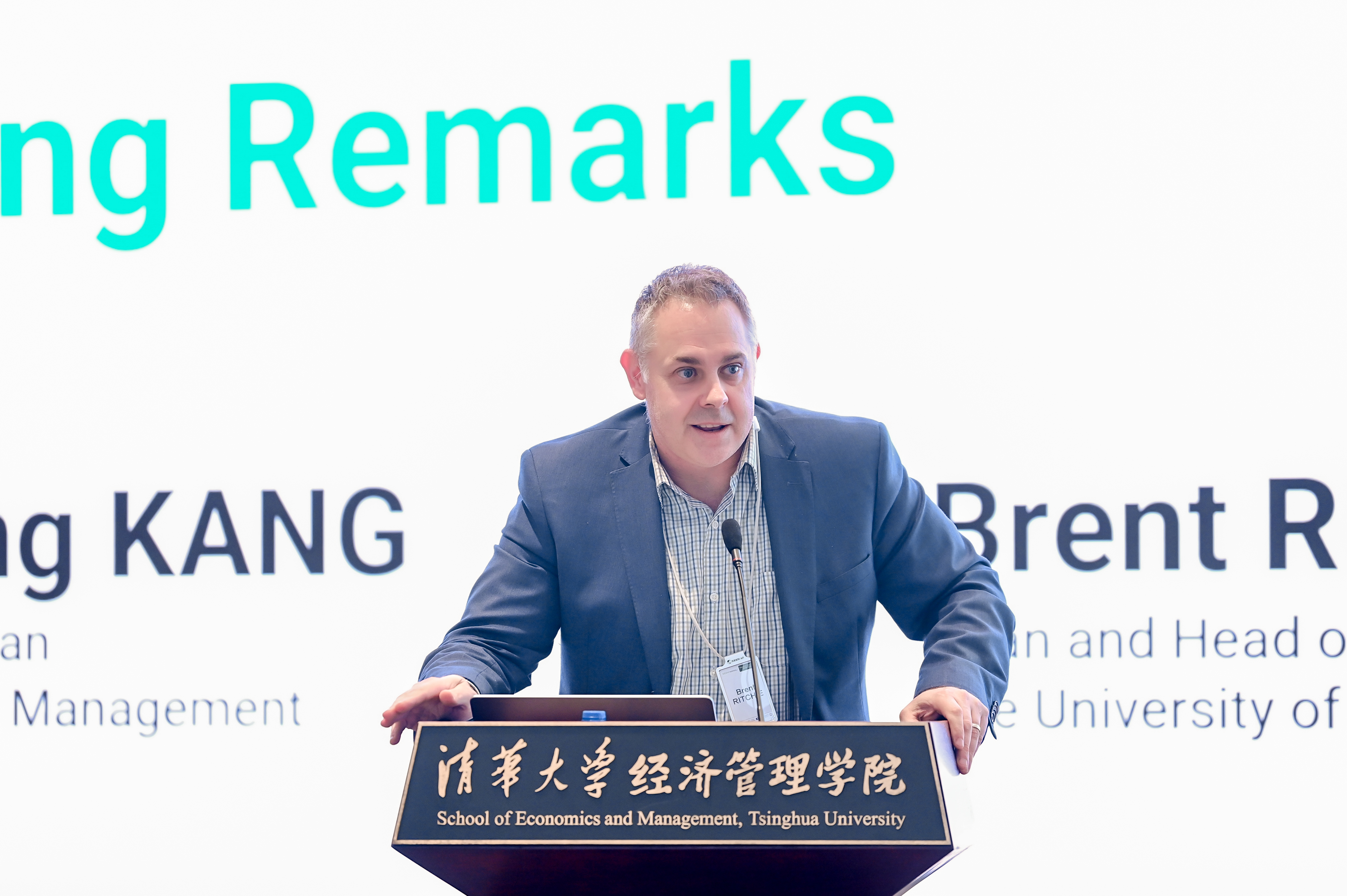
Brent Ritchie delivers a closing remark.
During the summit, 14 PhD candidate representatives from seven departments of Tsinghua SEM presented academic posters centering on their research directions and the conference theme. They engaged in exchanges and discussions with participating scholars, gaining valuable academic insights.
Source: Tsinghua SEM
Editors: Gillian Tang, Fang Si, Guo Lili